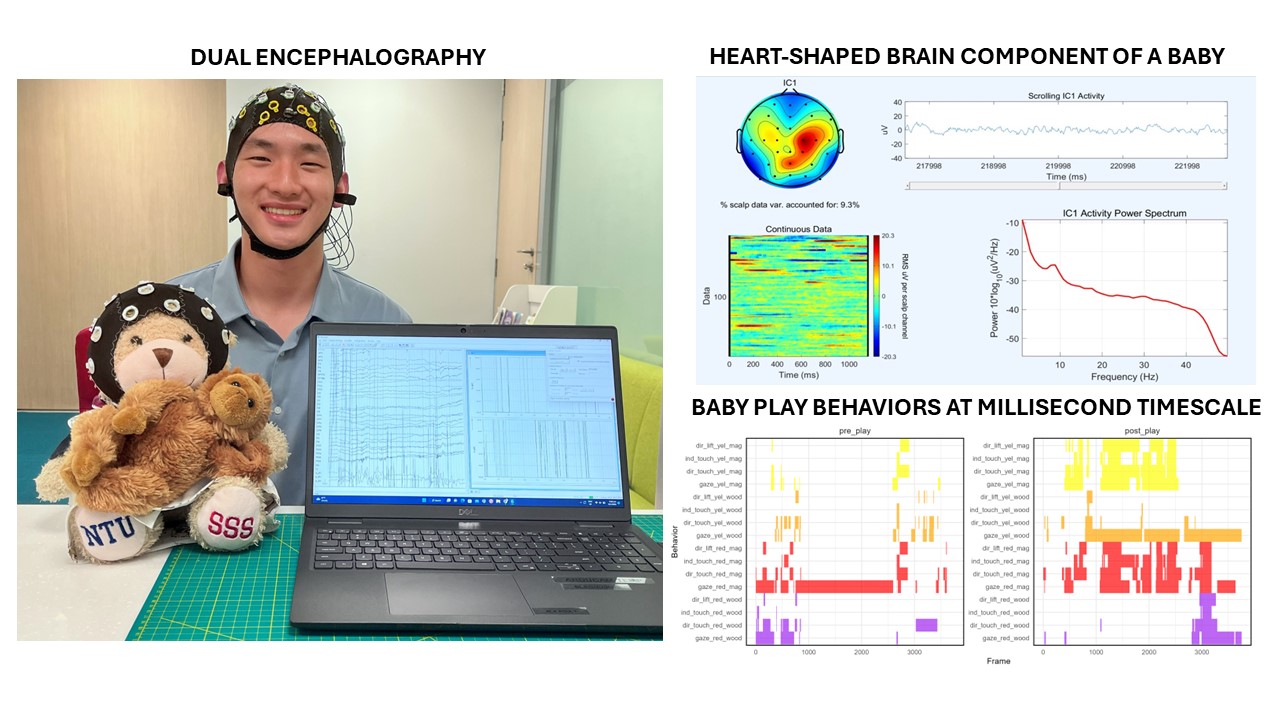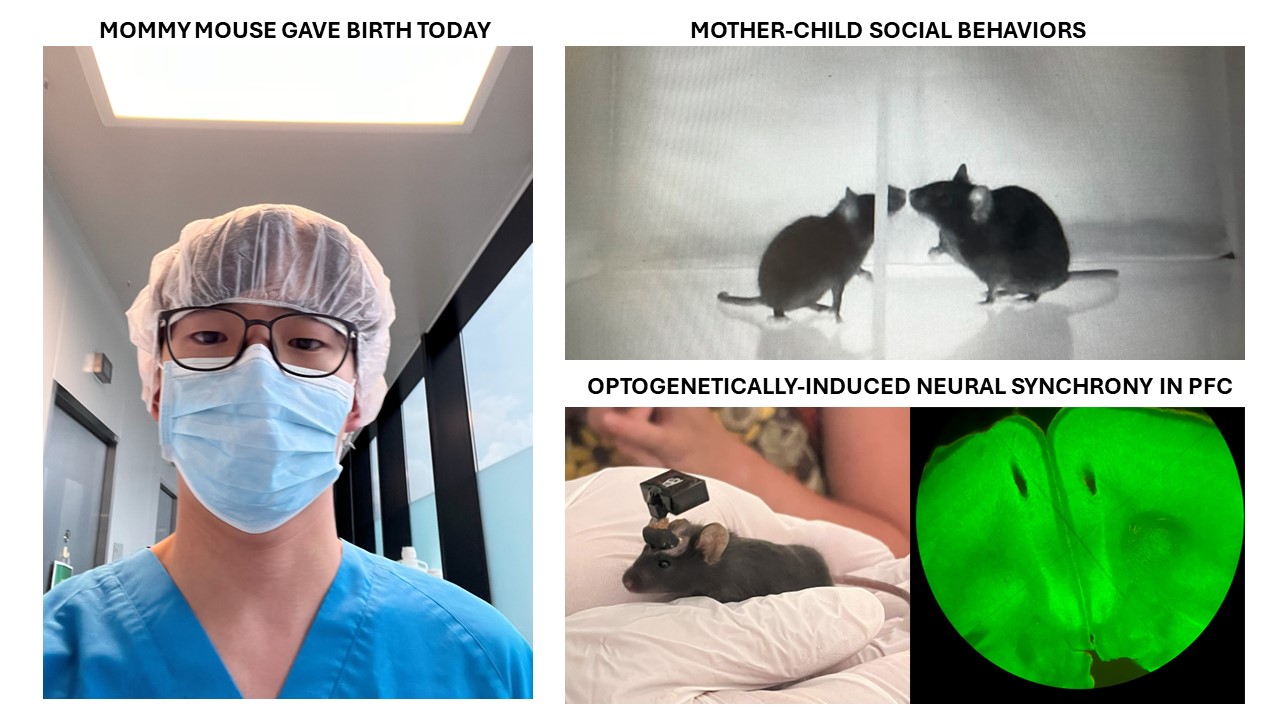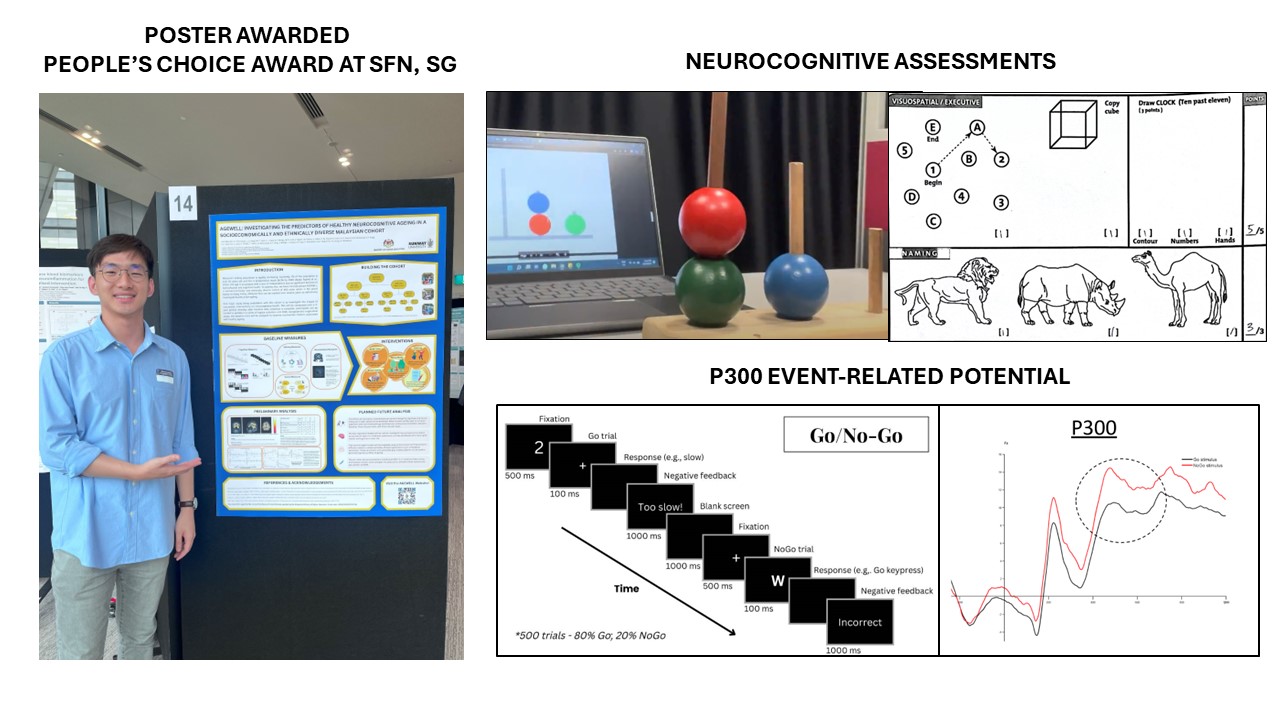Google Scholar
ResearchGate
ORCID
GitHub
X
A Sociometric AI Screening Tool to Risk-Stratify Infant Neurodevelopmental Trajectories (STARS)
 Description
Description
The STARS project aims to develop a novel, scalable screening tool, the SociomeTric AI neurodevelopmental Risk Stratification (STARS) toolkit, to measure infant mental wellbeing from 6 months of age and guide clinical deployment and policy implementation in Singapore. By leveraging innovations in dyadic-EEG brain imaging and AI machine-learning methods, the STARS toolkit will provide a brief screening test, individual risk prediction, and a mobile app for clinicians to assess early neurodevelopmental trajectories. If successful, it could enable nationwide infant screening for neurodevelopmental disorders, improving early intervention and generating long-term benefits for education and healthcare.
Principal Investigator
Prof Victoria Leong
Role
Student Investigator (Jan 2023–Dec 2024)
Responsibilities
-
Designed naturalistic tasks within a mother-child interactive context to assess executive functions, including working memory, cognitive flexibility, inhibitory control in children aged 6 to 36 months.
-
Collected and preprocessed dyadic EEG and ECG data from children at risk of developmental disorders, ensuring high-quality data capture and adherence to ethical standards.
-
Designed analytical pipelines for multimodal datasets using linear and nonlinear methods in MATLAB, R, and Python.
Output/Publications
-
Protocol for longitudinal imaging of parent–infant social interactive behavior and neurophysiology to assess emerging executive functions in infants with and without neurodevelopmental risks (in preparation).
-
Leong, V., Campolo, D., & Ong, J. Z. (2024). Understanding infants’ mental skills: New AI and sensor tools to measure development. Nanyang Technological University Magazine: Pushing Frontiers, (23), 22-23. PDF
A Novel Optogenetic Parent-Offspring Mouse Model of Neural Synchrony and Social Learning
 Description
Description
This project aims to test whether interpersonal neural synchronization is causally necessary for social learning by manipulating neural synchronicity within parent-infant dyads using optogenetic methods. Optogenetics offers precise, light-based control of neural circuits, allowing selective activation or inhibition of specific neurons in transgenic animals to study their role in social learning.
Principal Investigators
Prof Victoria Leong, Prof George J. Augustine & Dr Ham Gao Xiang
Role
Student Investigator (Jan 2023–Dec 2024)
Responsibilities
-
Adapted the social transmission of food preference paradigm to examine the role of optogenetically induced neural synchrony in social learning within parent-child dyads.
-
Managed mouse husbandry tasks, including breeding, genotyping, maintaining transgenic lines, and ensuring optimal animal welfare in compliance with ethical standards.
-
Performed brain harvests and conducted immunohistochemistry to identify and analyze implantation sites and gene expression.
Output/Publications
-
Ham, G. X., Ong, J. Z., Augustine, G. J., & Leong, V. (2024). Protocol to study dam-pup social transmission using a modified paradigm for transmission of food preference. STAR Protocols, 5(2), 103077. https://doi.org/10.1016/j.xpro.2024.103077
-
Optogenetic synchronization of rodent dam-pup prefrontal cortex increases socially contingent behaviour and stable states for knowledge transmission (in preparation).
AGEWELL: Ageing, Health and Well-Being
 Description
Description
AGEWELL is a longitudinal project that aims to identify the optimal combination of life conditions predicting positive ageing outcomes across neural, psychological, biological, and economic dimensions. It also seeks to investigate the impact of naturalistic interventions on neurocognitive health over a 4-year period.
Principal Investigator
Prof Alexandre Schaefer
Role
Research Assistant (Jul 2022–Nov 2022)
Responsibilities
-
Conducted community outreach to recruit a socioeconomically diverse Malaysian cohort aged 60 and above.
-
Administered neuropsychological assessments, including the Tower of London, Montreal Cognitive Assessment, Go/No-Go, Iowa Gambling Task, and Wisconsin Card Sorting Test, alongside EEG data collection.
-
Preprocessed EEG data and computed event-related potentials using MATLAB.
-
Preprocessed and analyzed data in SPSS and R to evaluate the impact of socioeconomic factors on cognitive performance.
Output/Publications
-
Vafa, S., Ong, J. Z., Yong, M. H., Arokiaraj, A. S., Shee, D., Chia, Y. C., & Schaefer, A. (Under Review). Online cognitive testing with Asian older adults during the Covid-19 pandemic: A proof-of-feasibility study. Preprint: https://doi.org/10.31234/osf.io/t8exs
-
Marzuki, A. A., Thanaraju, A., Ong, J. Z., Yip, W. Z., Yap, Z. J., Wong, K. Y., … Schaefer, A. AGEWELL: Investigating the predictors of healthy neurocognitive ageing in a socioeconomically and ethnically diverse Malaysian cohort. Poster presented at Annual Meeting of the Society for Neuroscience 2022, Singapore Chapter. http://doi.org/10.13140/RG.2.2.18928.74241
Interpersonal and Sexual Functioning, and Personal Well-being among Malaysian Adult Singles
Description
This project examines the social functioning, motivations, and support mechanisms of single adults in Malaysia, where modernization and globalization are challenging traditional values around relationships. It explores how singles adapt their support systems without romantic partners, especially in the context of COVID-19, which has reshaped how relationships are formed and maintained.
Principal Investigator
Dr Goh Pei Hwa
Role
Student Investigator (Jan 2021–Dec 2021)
Responsibilities
-
Designed and developed survey instruments to assess social functioning, motivations, and support mechanisms.
-
Managed data collection efforts during the COVID-19 pandemic.
-
Performed data cleaning and generalized linear modelling using in R and SPSS.
Output/Publications
-
Koh, D. M., Ong, J. Z., & Goh, P. H. (Under Review). Helicopter Parenting and Social Competence among Single Malaysian Adults: Filial Piety as a Moderator.
-
Thesis: The Relationship between Romantic Dispositions and Romantic Need Prioritization in Single Adult Malaysians: The Moderating Role of Gender